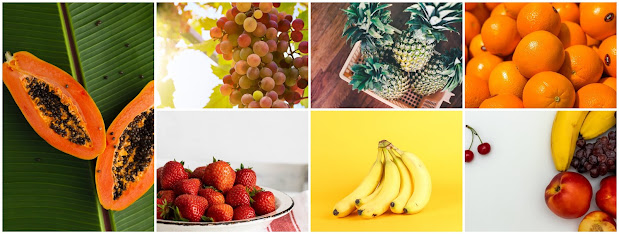Disadvantages of Potatoes-How to make it healthier?
5 Disadvantages of Potatoes |Health|
|How to make potatoes healthier?|
Potato is known as the king of
vegetables.
It is consumed in variety of dishes all over
the world; especially it goes well in all types of Indian dishes. Indian
cooking is incomplete without potatoes. It has become a staple food.
While many people consider
potatoes to be healthy, potatoes have managed to stir up some controversy with
its disadvantages.
In our last post, we discussed
about 10 benefits of potatoes, from skin to health related advantages.
But, potato sometimes may become
unhealthy if we do not consume it properly.
So, here is a list of 5
disadvantages of potatoes we all should know.
At the end, we are also providing
some reference tips to make potatoes healthier.
1. Potatoes contain Glycoalkaloids
Glycoalkaloids are a potentially toxic family of chemical compounds
found in the solanaceae family of plants.
Green potatoes, are especially high in glycoalkaloids and so are harmful
for human consumption.
 |
| Image by|Freepik |
One animal study showed that the glycoalkaloids found in potatoes could affect digestive health and may even aggravate inflammatory bowel disease.(1)
Other symptoms of glycoalkaloid toxicity includes drowsiness, increased
sensitivity, itchiness and digestive symptoms.(2)
2. Too much Calories
Excess calories, regardless of the food source, can lead to weight gain. One medium (6.1 ounces or 173 grams) Russet baked potato, including the flesh and skin, contains 168 calories.(3)
 |
| Image by|Rythik |
However not all types of potatoes contain equal amount of nutrients.
Like, Red potatoes contain less calories than Russet potatoes and
processed potatoes.
3. High carbohydrate content
Potatoes are rich in carbs but it
cannot be the the reason to eliminate it from our diets.
Potatoes with its high starch
content is classified as a complex carb and eating them in moderation
is not unhealthy.
 |
| Image by|Pixzolo |
But, excess consumption of potatoes will cause
high intake of carbohydrates. So, to lessen the intake of carbs, we have to
lessen the consumption of potatoes but not eliminate it completely.
4. Increase in Blood sugar level
Potato glycemic index (above 80)
is very high, so people who are obese or are suffering from diabetes are asked
to avoid excessive consumption of potatoes.
 |
| Image by|Kate |
Increased consumption of potato increases complications such as blood sugar imbalance; type 2 diabetes.
Diabetic patients are advised to
maintain caution while eating any potato dishes. However, non-diabetics can
counteract the sugar spike by combining potato with low GI.
5. May contribute in weight gain
A study conducted in 2009 followed 42,696 participants over a 5-year period.
 |
| Image by|Obi Onyeador |
It found that eating potatoes was
associated with an increase in waist circumference in women, which shows some potatoes may contribute to
increase in weight.(4)
Also read| 10 benefits of Potatoes-Health and Skin
How to make Potatoes
healthier?
1.Peeling the potato can remove a significant portion of the fiber and mineral content, contained in the skin.(5) (6)
2. Selecting a healthy cooking method is also important.(7)
3. Frying potatoes can increase their fat and calorie content,
compared to other cooking methods like baking or boiling.
4. When enjoyed in moderation quantity, potatoes can be a nutritious
addition to your diet.
5. Processed potato products are also less nutrient dense and
contain more calories, fat and sodium than whole potatoes.
6. Storing potatoes at lower
temperatures, away from sunlight, can prevent glycoalkaloid formation.(8)
 |
| Image by|Hgartley |
Do potatoes deserve a
second chance?
What I found out that, although potatoes have some disadvantages, but in
general, it is a healthy nutritious vegetable.
Proper intake and right quantity of consumption is necessary to avoid
its disadvantages.
However, there are a lot of myths on potatoes which is needed to be
eliminated.
So, you can think, whether to take this rich vegetable in your diet or
not.
Reference:
(1) https://pubmed.ncbi.nlm.nih.gov/12479649/
(2) https://www.ncbi.nlm.nih.gov/pmc/articles/PMC3153292/
(3) https://nutritiondata.self.com/facts/vegetables-and-vegetable-products/2550/2
(4) https://pubmed.ncbi.nlm.nih.gov/19631041/
(5) https://www.ncbi.nlm.nih.gov/pmc/articles/PMC3064541/
(6) https://pubmed.ncbi.nlm.nih.gov/19960391/
(7) https://pubmed.ncbi.nlm.nih.gov/20331422/
(8) https://pubmed.ncbi.nlm.nih.gov/3507005/
Other Sources:
Healthsupport042.blogspot.com


People actually should read such great contents.
ReplyDelete